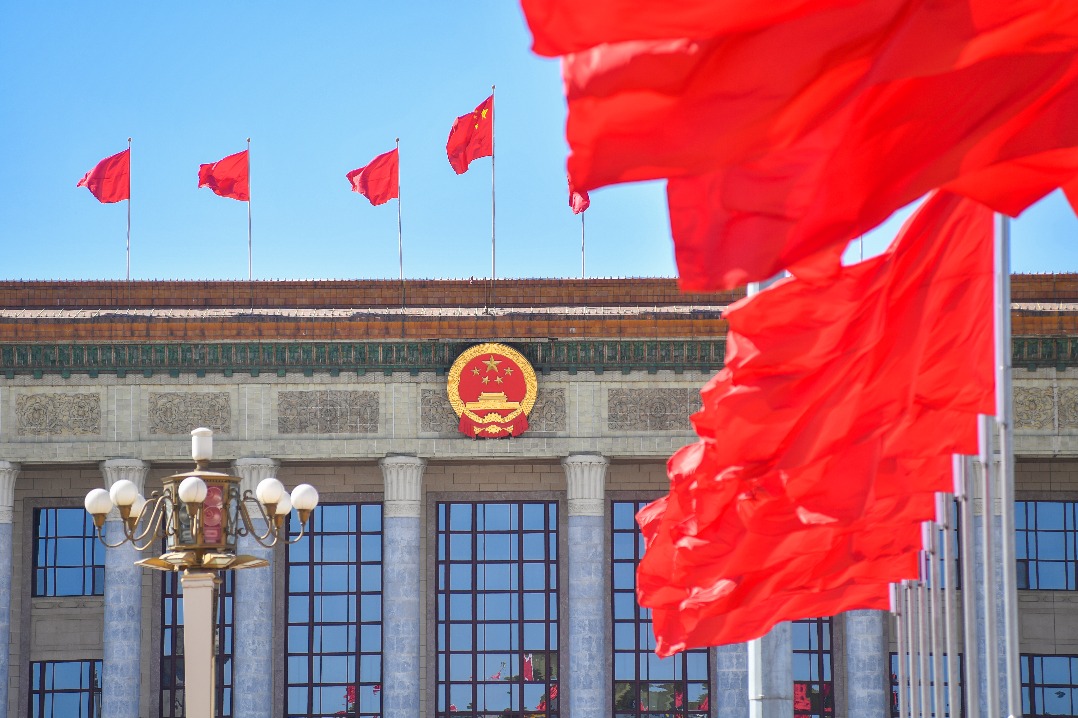China's Legal Framework and Measures for Counterterrorism
The State Council Information Office of the People's Republic of China January 2024

III. Standardized Exercise of Power in Fighting Terrorism
Chinese law distinguishes between administrative and criminal offenses that constitute terrorist activity, and stipulates different procedures for their handling. Administrative penalty procedures apply in cases of unlawful terrorist activities, while criminal procedures apply in cases of criminal terrorist activities. The procedures have been regulated in accordance with the law, case management responsibility has been implemented, and external oversight has been strengthened to ensure the standardized and orderly exercise of power in handling terrorist cases.
— Regulating the procedures. Chinese law prescribes the powers and responsibilities of law enforcement and judicial agencies in handling cases. Cases of unlawful terrorist activities are investigated and handled by public security agencies, while cases of criminal terrorist activities are investigated by public security agencies, examined and prosecuted by people's procuratorates, and tried by people's courts.
When handling terrorism cases, law enforcement and judicial agencies must exercise their statutory authority and powers to ensure the accurate and effective enforcement of the law. In managing cases, public security agencies should withdraw cases that should not have been filed, and people's procuratorates have the power to supervise the withdrawal.
When collecting and obtaining evidence, public security agencies should collect evidence both in favor of and against the suspect. Torture and other illegal means are prohibited in collecting evidence, and evidence obtained by illegal means should be excluded in accordance with the law.
When approving arrests and examining cases for prosecution, people's procuratorates should not warrant an arrest or initiate prosecution if the required conditions are not met.
At the trial stage, people's courts should render a verdict of not guilty if the evidence is insufficient or the act does not constitute a crime.
— Implementing the responsibility for case management. To ensure strict law enforcement, judicial justice, and accountability of the competent authorities, China's law enforcement and judicial agencies have promoted reform of the responsibility system.
With effective trial management and supervision, people's courts have advanced substantive reform in trials, further clarifying their organizational authority and the duties of judges to unify the responsibility for conducting trials and rendering verdicts, and ensure the lawful, independent and impartial exercise of judicial power.
People's procuratorates have built a fair and efficient mechanism for exercising procuratorial power by improving the organization of case management, defining the internal division of authority, and strengthening the judicial responsibility system to ensure the accountability of those who handle cases and make decisions.
Public security agencies have established a case review and approval mechanism that defines the powers of those who handle, review, and approve cases. Information technology is now applied to track and trace the entire process, and to keep these activities within bounds.
With their responsibilities clarified, law enforcement and judicial agencies have put in place a strict accountability system, under which judicial officials who are found to have violated the law in case management will be held accountable and given due punishment; if their acts constitute a crime, they shall be prosecuted for their criminal responsibility. To fully regulate the exercise of power, the reform to standardize the consistency of sentencing has been introduced, a case handling quality assessment system and a performance evaluation and review mechanism have been initiated, case management and guidance have been reinforced, and training has been improved.
— Strengthening external oversight. The powers of law enforcement and judicial agencies are subject to external oversight from people's congresses, the Chinese People's Political Consultative Conference (CPPCC), and the public, as well as to statutory and internal oversight.
People's congresses, as bodies of state power, oversee the work of people's courts and people's procuratorates by hearing their work reports and conducting special inquiries. The CPPCC exercises democratic oversight over law enforcement and judicial agencies. People's courts, people's procuratorates, and public security agencies invite supervision from people's congresses and the CPPCC, while the public can supervise the work of these agencies in the capacity of people's assessors and people's supervisors and by attending hearings.
Example 6 Public Scrutiny over People's Procuratorates in Case Management
A suspect surnamed Zhang was investigated on suspicion of illegally possessing items advocating terrorism. When examining the case for prosecution, a procuratorate in Anhui Province conducted public hearings to extensively solicit opinions and invite scrutiny.
— Expanding channels of oversight. To prevent abuse of power in law enforcement and judicial matters, channels of oversight have been expanded and public scrutiny has been strengthened through various means, increasing the transparency of law enforcement and justice.
For greater openness, people's courts have established platforms for the timely release of information on judicial process, judgments, the execution of judgments, and trials. People's procuratorates have increased transparency by releasing information on their procuratorial activities and affairs and have used information technology to establish platforms for this purpose, including setting up electronic displays and inquiry devices and opening websites and webpages for inquiry. Public security agencies have made their policing and administrative penalty enforcement activities more open and accept scrutiny from citizens and the wider society over law enforcement processes and outcomes. Judicial administrative agencies have ensured transparency in prison affairs, released information on the conditions, procedures and results of law enforcement in prisons, regulated acts of law enforcement by prison officers, and made prison management more standardized and institutionalized under the rule of law.
Example 7 Greater Transparency in Prison Affairs
China's prison authority has issued a handbook on prison affairs disclosure to promote differentiated release of information to different groups on the basis of protecting privacy for convicts. General information is released to the public for their knowledge, more detailed information is shared with the family of convicts, and complete information is disclosed to law enforcement supervisory agencies.


































